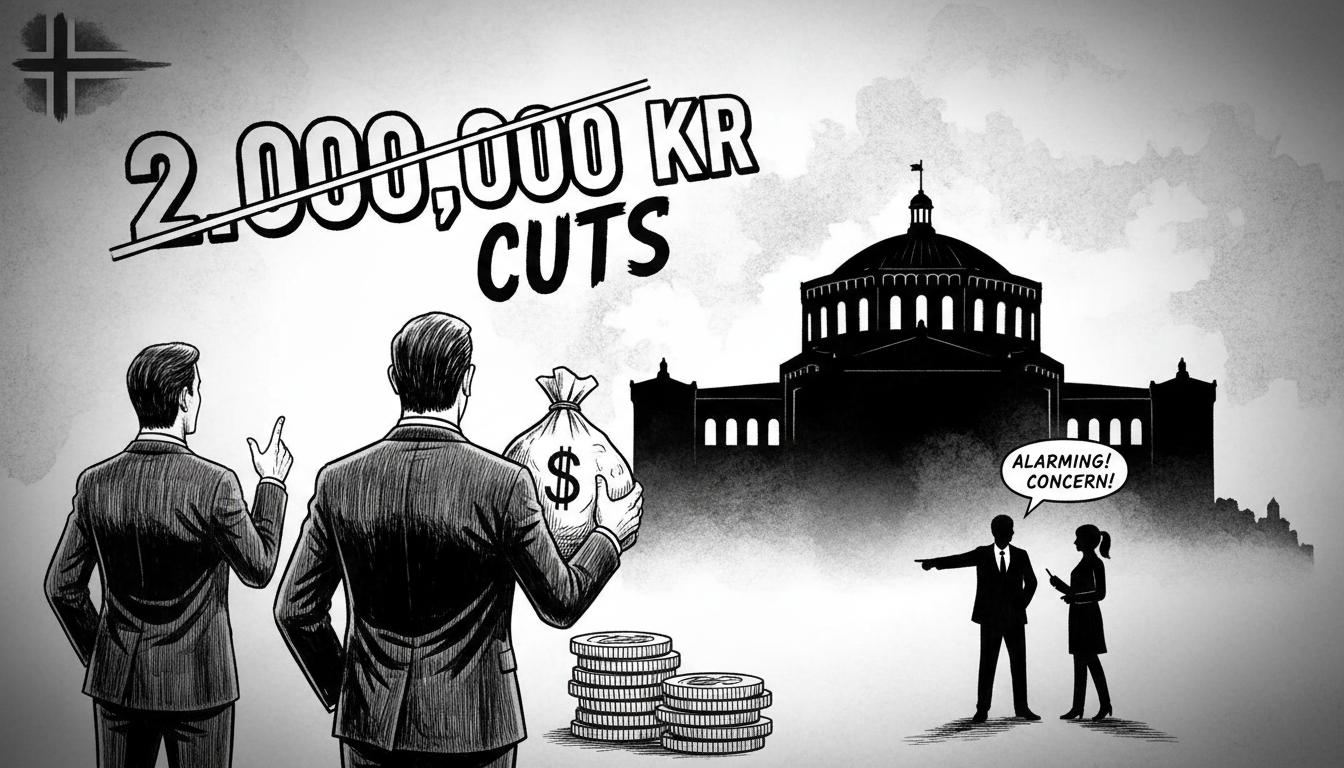A communications director in Norway's health system recently turned down his final pay raise. Kim Hannisdal returned to his previous salary level as a temporary employee. His total compensation now stands at 1.74 million Norwegian kroner.
But Hannisdal is far from alone in receiving what health workers would consider exceptional pay. New data reveals communication directors across Norway's regional health enterprises earn substantial salaries.
Health Minister Jan Christian Vestre provided the compensation figures to Parliament. The data shows many health communication executives earn as much or more than the country's top elected officials.
A member of Parliament earned 1.2 million kroner last year. A government minister made just under 1.7 million kroner. These figures don't include pension benefits, making direct comparisons difficult.
Geir Pollestad, a Center Party representative, requested the salary data. He finds the number and pay level of communication directors alarming.
"We have too many highly paid communication chiefs in the health system," Pollestad stated. "We need to reduce both the numbers and the salary levels."
He criticized their primary function, claiming they suppress and repackage messages rather than communicate openly.
The Center Party has declared war on the health enterprise model itself. This model involves state ownership of hospitals through publicly owned health enterprises.
Party leaders note there are 338 directors across 19 patient-treatment health enterprises. Their average salary reaches 1.4 million kroner, totaling 473 million kroner in annual wage costs.
Board members at regional health enterprises set salaries and compensation. But Health Minister Vestre sits at the top of this structure.
Karl Kristian Bekeng, a state secretary, acknowledged the salary questions. "I understand that questions are being raised about the salary level," he said. "This is a level many Norwegians don't recognize."
He noted public sector wages should be competitive but not leading. Both the government and Parliament have emphasized the need for moderation.
Recently, the Labor Party gained majority support for reviewing executive pay development in health enterprises. The proposal calls for comparing these salaries against other sectors and ensuring moderation.
Bekeng said they would consider various measures if the review shows unreasonable development. The Labor Party's proposal wasn't as strict as left-wing parties wanted regarding salary limitations.
Vestre has established a committee to examine the health enterprise model. Pollestad criticized the current approach, saying it focuses too little on core patient treatment tasks.
The salary debate highlights Norway's ongoing struggle to balance competitive public sector pay with public expectations about reasonable compensation levels.
